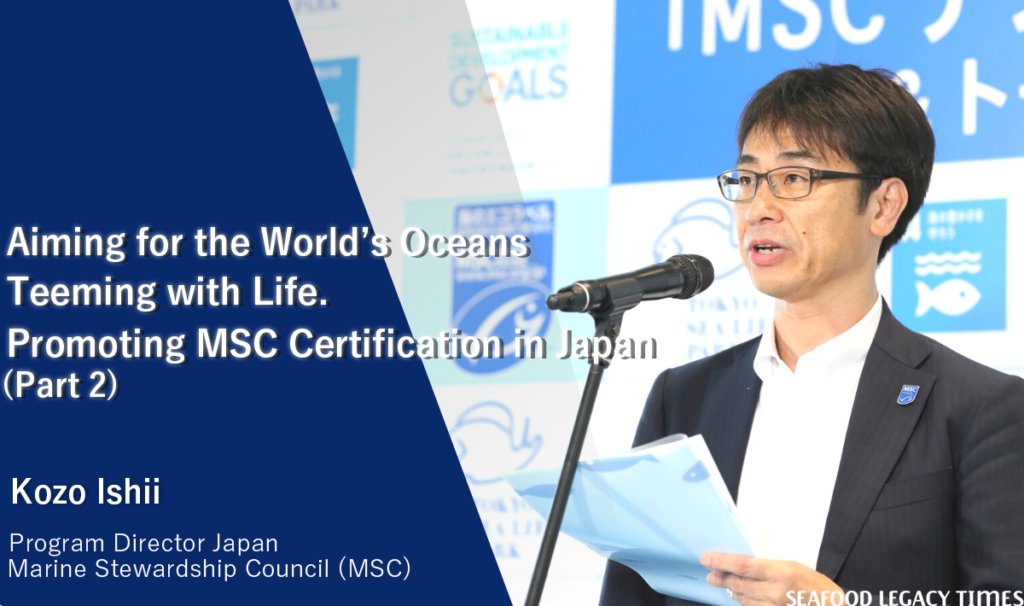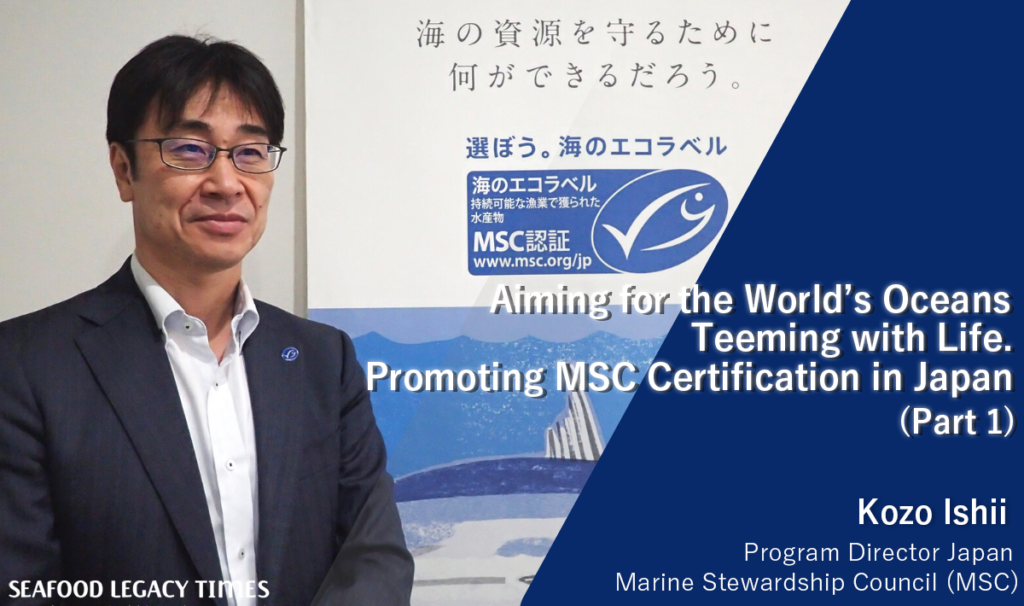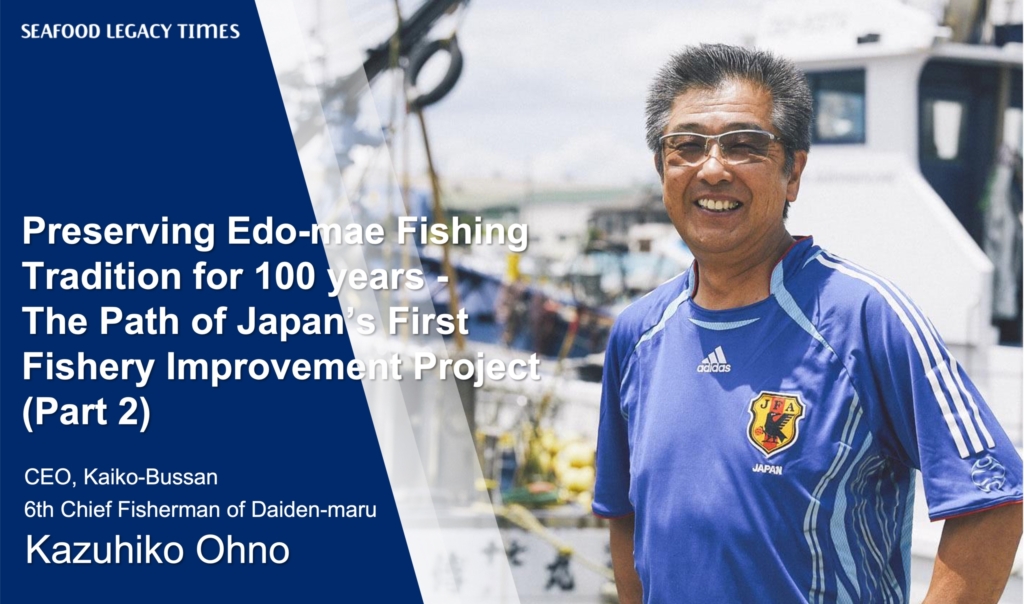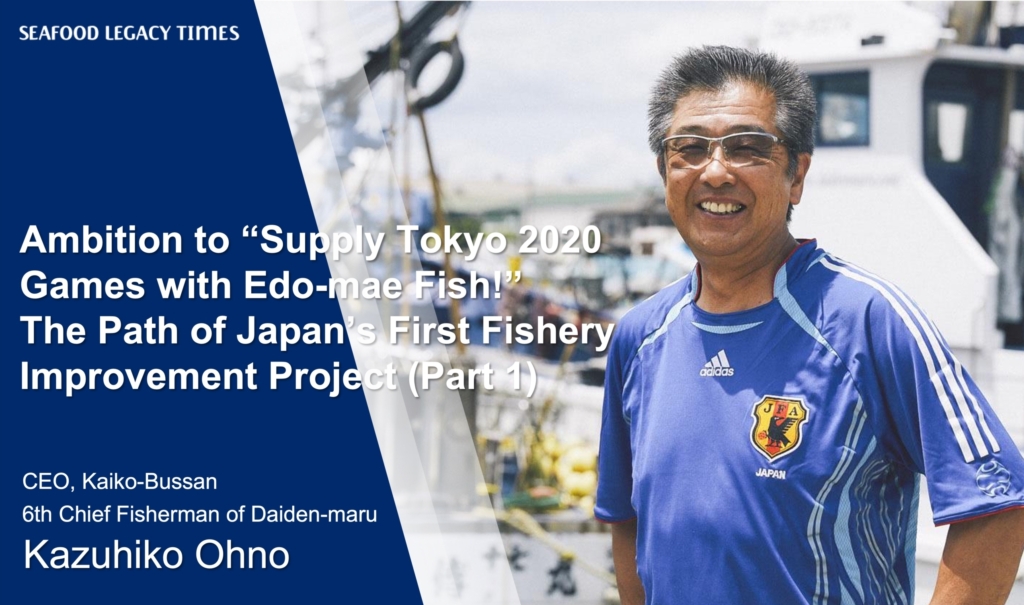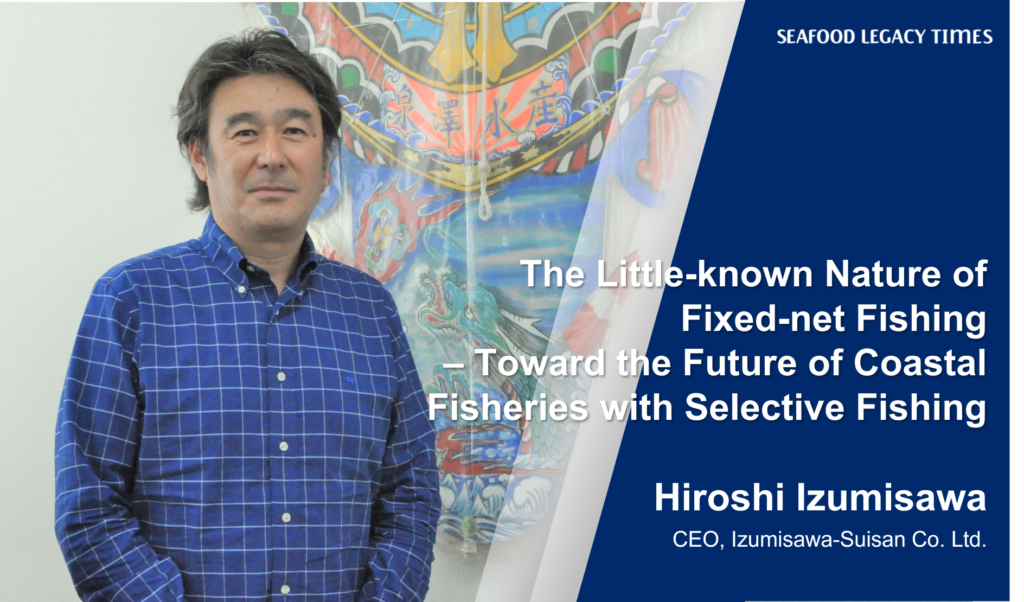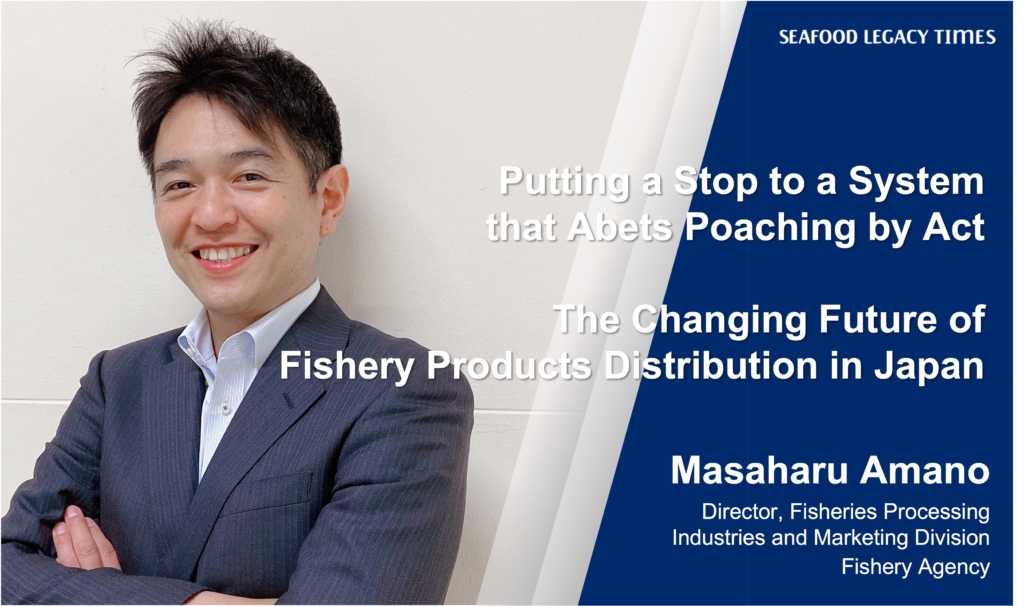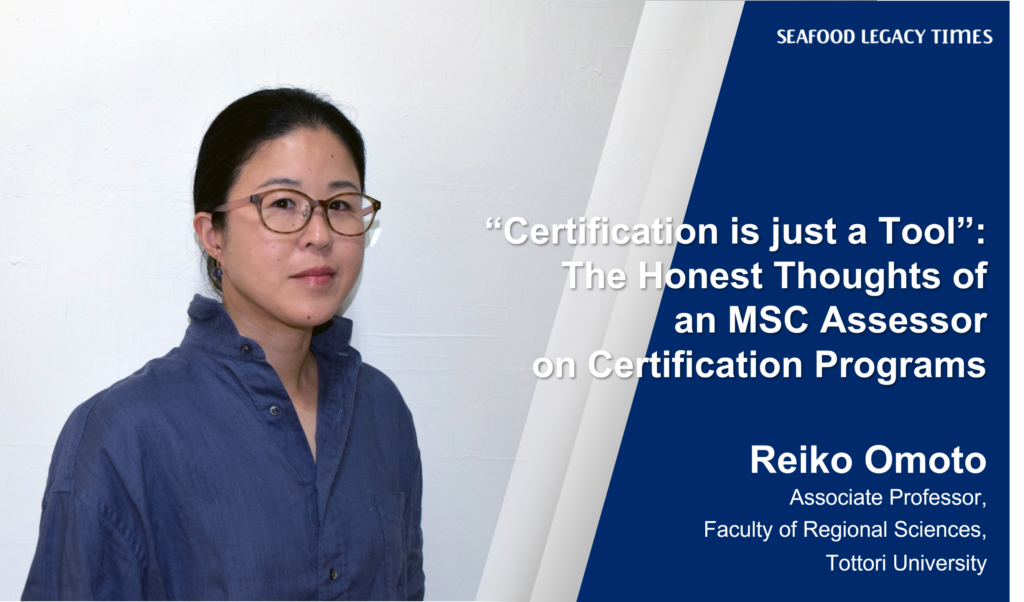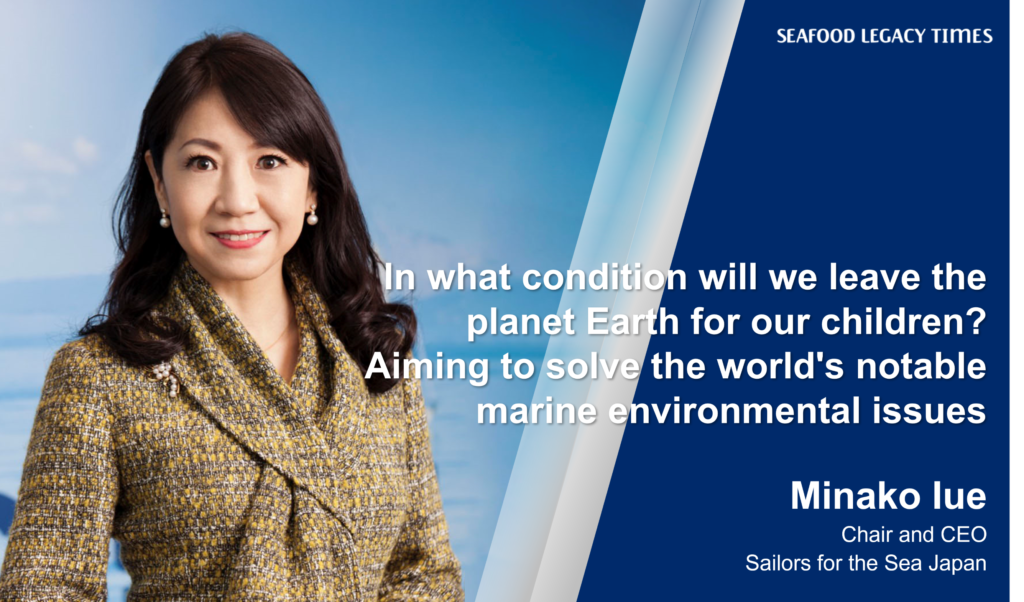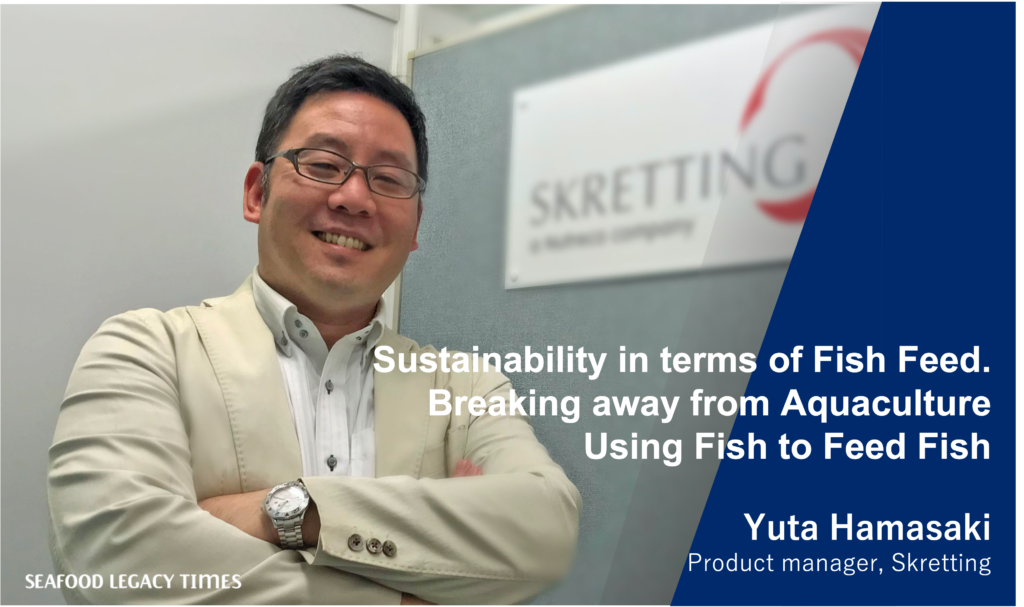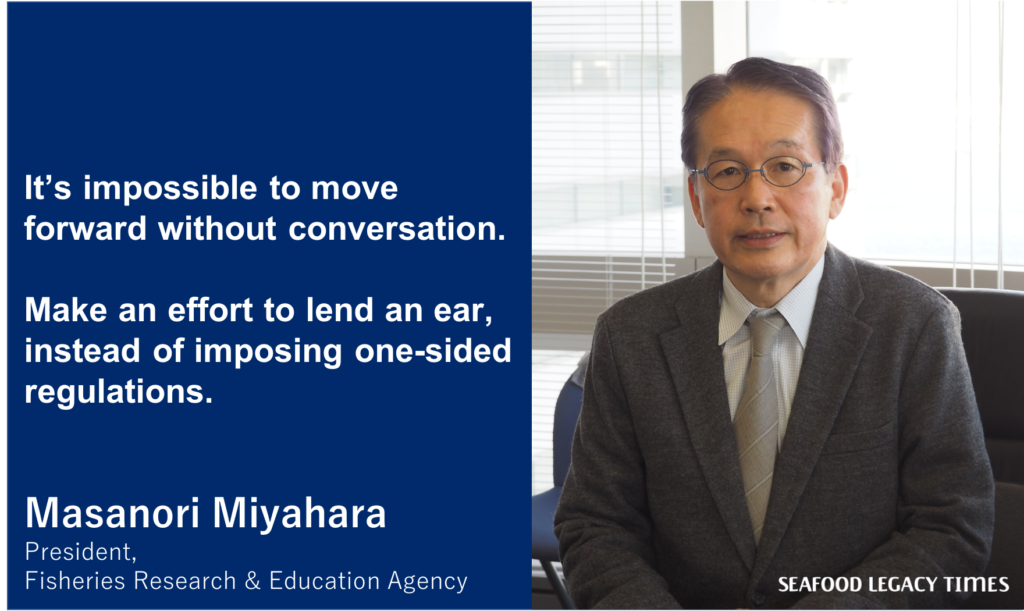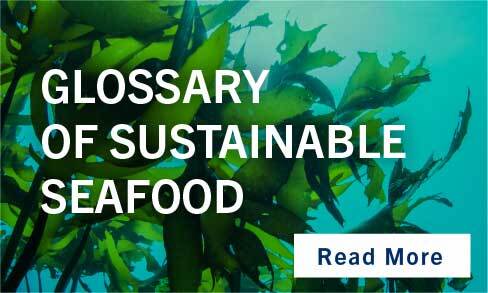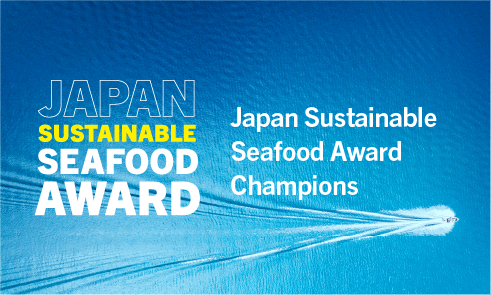
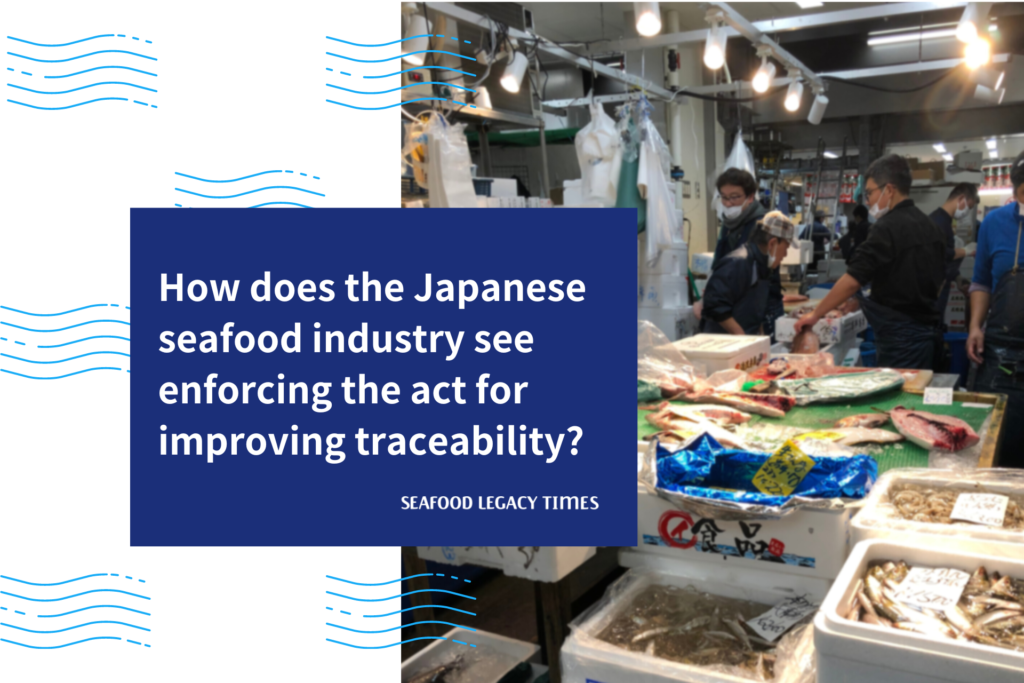
On December 1, 2021, Act on Ensuring the Proper Domestic Distribution and Importation of Specified Aquatic Animals and Plants (hereafter, the act) was enforced. This act is a big step for speeding up the sustainability of the Japanese seafood industry. We asked leaders who have promoted seafood sustainability in Japan about the meaning and future challenges of the act.

1. What is the significance of enforcing the Act on Ensuring the Proper Domestic Distribution and Importation of Specified Aquatic Animals and Plants?
A major objective of the Act on Ensuring the Proper Domestic Distribution and Importation of Specified Aquatic Animals and Plants is the delivery of robust fishery resource management and improving the traceability system of seafood. The act will work to eliminate poaching and IUU fishing through the implementation of strict management using unique catch numbers, and at the same time manage the fishing stock properly with accurate catch information.
We, producers, have an obligation to report catches, and a need to work toward maintaining trust in catch measuring and records more than ever before. I believe this is an important system for achieving the provision of safe, secure, transparent, and legal fishery products.
2. What will be the future challenges?
I feel the specified Class I and Class II aquatic animals and plants are extremely limited in scope. In recent years the improper distribution of unreported bluefin tuna harvests and short-necked clams with falsified origins has become unveiled. The prevention of the market distribution of illegal fishery products without exception is vital, and it will become necessary to expand the list of target species in the future.
Also, digitizing the catch number communication system is necessary, but it will also be important to design a system that can be used by older fishermen who lack technological skills.

1. What is the significance of enforcing the Act on Ensuring the Proper Domestic Distribution and Importation of Specified Aquatic Animals and Plants?
While Japan is one of the world’s largest importers of seafood, research has shown that approximately 30 percent of that is sourced from IUU fisheries. Thus, there has been worldwide demand for action to eliminate IUU fisheries. Furthermore, low-priced products from IUU fisheries have become threats to Japanese fishermen who respect rules.
Amid these issues, following the United States and EU, enforcing this act that prevents the distribution of IUU fishery-origin seafood is meaningful for solving a global problem as well as protecting the Japanese seafood industry.
2. What will be the future challenges?
The challenge is that the number of fish species covered by the law is still small. The EU covers all importing fish species with an earlier implementation of a similar regulation, and the United States is considering legislation increasing their current 13 target species to all importing species as well. Japan should follow speed up in increasing the number of target species in order to pursue the elimination of IUU fisheries.
Other countries also need to enact similar laws as well in order to eliminate IUU fisheries. I hope that the Japanese government will take the leadership among Asian countries as an advanced country fighting against IUU fisheries.
WWF Japan is holding a signature-collecting campaign to expand the target species of the low.

1. What is the significance of enforcing the Act on Ensuring the Proper Domestic Distribution and Importation of Specified Aquatic Animals and Plants?
We can not put something into the box if there is no box. In this sense, I think there’s great value in the enactment of this law which is a framework for future laws with superior content. I also think the process behind it deserves attention, in which a diverse collection of groups and individuals serious about the sustainability of the fishing industry came together, coordinating and communicating on a global scale.
2. What will be the future challenges?
Foreign conservation organizations have been asking about the details of the law, and the effectiveness post-enactment will be closely watched. I expect the Japanese authorities to proactively communicate the act’s contents and its effects in English.
Also, while the number of target species is limited, fisheries and fishery cooperatives are hoping to see a catch traceability information system similar to MSC certification tracking that can be used to publish data necessary for fishery inspections.

1. What is the significance of enforcing the Act on Ensuring the Proper Domestic Distribution and Importation of Specified Aquatic Animals and Plants?
Responsibility for sourcing in the business supply chain is now up to cover the origin of raw materials, but it’s difficult for individual businesses to handle this on their own, and a societal system or framework is needed.
The enforcement of the act to prevent the distribution of fishery products caught by IUU fishing is vital to the protection of our fishery resources and to the ability of consumers to purchase our products with confidence. I give my highest respect to the efforts of the Fisheries Ministry and all others involved.
2. What will be the future challenges?
This law currently only applies to six species at high risk from IUU fishing, but I’d like to see things carry forward from here and produce a system that’s more efficient and easier for fisheries and businesses to work with, as well as an expansion in the number of target species. It will not be easy to eliminate IUU fishing, but I think it’s important to not only improve traceability but for stakeholders domestic and foreign alike to corporate toward solving the societal issues that enable the continuation of IUU fishing.

1. What is the significance of enforcing the Act on Ensuring the Proper Domestic Distribution and Importation of Specified Aquatic Animals and Plants?
The enforcement and implementation of this act show that we recognize that up until now the distribution of fishery products has not been carried out properly, and I’m glad that, while very late in the game, our leaders have finally decided to take real action toward the sustainability of the seafood industry in Japan. In addition to the decline of fishery resources, poaching by non-licensed vesesls has run rampant, and it’s clear that if things remain as-is there will no longer be a place for fishermen who respect rules, threatening our nation’s food security.
2. What will be the future challenges?
I feel there is a need to expand the range of this act beyond just a few “specified fishery products”, and if for nothing else but to preserve the value of their existence fisheries need to take the initiative to disclose their information. We have to remember that the reason this “inconvenient truth” has been allowed to continue is because behind the scenes there are players in the supply chain as well as consumers who support it.
Responsible production by fisheries and responsible consumption by consumers must be recognized as a common issue for all Japanese citizens, and we may need to consider further strengthening penalties on suppliers/users in some circumstances, as well.

1. What is the significance of enforcing the Act on Ensuring the Proper Domestic Distribution and Importation of Specified Aquatic Animals and Plants?
In recent years, the poaching of abalones, sea cucumbers, and more are increasing, and these poaching activities seriously affect the catches of fishermen who respect rules. This is considered to be a source of income for criminal groups. This sort of poaching is a type of IUU fishing, and by preventing it I feel this act will lead to the elimination of the IUU fishing industry.
2. What will be the future challenges?
I think that this law not covering forced labor and other unfair working conditions of the seafood sectors will be an issue going forward.

1. What is the significance of enforcing the Act on Ensuring the Proper Domestic Distribution and Importation of Specified Aquatic Animals and Plants?
In order to protect our country’s decent fishermen, new legislation banning the import and sale of IUU fishing products is essential. In order to keep our supply chain from becoming a market for the world’s illegal fishing products, we must swiftly implement a strict legal framework like those in the US and EU that applies to all fishery products, including processed products.
2. What will be the future challenges?
Frankly, the current act only applies to a few species, and its effectiveness is limited. I hope we can quickly see a revised version with some real force behind it, with strict rules and no loopholes, before we upstanding Japanese fishermen operating in the domestic industry are driven out of business. At the same time, I also think there needs to be a law allowing consumers to see the production history of the fishery products they purchase.

1. What is the significance of enforcing the Act on Ensuring the Proper Domestic Distribution and Importation of Specified Aquatic Animals and Plants?
This new regulation can eliminate importing IUU products to the Japanese market. Both the US and EU have already implemented import regulations to prevent IUU products, and Japan has been a major loophole for IUU fishing. This new regulation can protect fisheries operating lawfully and prevent consumers from unintendedly purchasing illegal products. Japan has taken a significant step toward ending IUU fishing.
Further, this new law is effective not only for fish stock status recovery but also for the issues such as illegal working conditions, including modern slavery on board, poverty, and gender.
2. What will be the future challenges?
Japan enacted this new law with seven species to start, and following the EU’s example to target all fish species as soon as possible is a challenge.
It is also vital to improve the efficiency of communication of catch information through DX technology and to effectively use this information so that the consumers can select seafood with an eye to traceability.
Although this new law did not realize the labeling requirement for retailers and restaurants, it should contribute to fostering a movement by voluntarily disclosing information to consumers.It is expected that society as a whole learn that information is the added value of a product.

1. What is the significance of enforcing the Act on Ensuring the Proper Domestic Distribution and Importation of Specified Aquatic Animals and Plants?
Looking back, this has been quite a long road.
The Code of Conduct for Responsible Fisheries was adopted by the FAO general meeting in 1995, 22 years later the PSMA went into effect, and Japan joined in 2017. Then in 2020 the Act on Ensuring the Proper Domestic Distribution and Importation of Specified Aquatic Animals and Plants was enacted and took effect on December first 2022.
In the meantime the New Fishery Act was executed in December 2020, Japan’s legal system surrounding the seafood industry was built, and we’re gradually moving from superficial discussion to action on the elimination of IUU fishing. I see this new law’s enactment as having a tremendous impact by showing the determination of Japan’s government and seafood industry to the country and the world.
2. What will be the future challenges?
Even as the movement to demand more ethical actions from society gains pace, typical poaching, questionable catch report contents, and falsified origin locations show no signs of disappearing. An expansion of target species and easy-to-use digitization will be necessary to meet the law’s objectives.
Finally, we at MEL, with certification holders and other interested parties as our allies, will take up the words of the old Chinese master Laozi, “Heaven’s justice is slow but sure,” as our philosophy and basis for action and give our all to contribute to this law’s success.

1. What is the significance of enforcing the Act on Ensuring the Proper Domestic Distribution and Importation of Specified Aquatic Animals and Plants?
Amid the decline of wild fishery resources’ stock status, I think that how we wholesalers respond to that reality and sell our properly distributed seafood is extremely important. However, there is a limit to what we can do as a single company. Thus, I feel it’s very significant that this new act was enacted in order to provide a needed legal framework and process for solving this problem together as an industry.
2. What will be the future challenges?
The challenge of this act is that the target species is limited. In recent years we’ve had issues with falsified origins of short-necked clam, and unreported bluefin tuna catches, so I think there’s a need to continually expand operations to include these to abalones and sea cucumbers.
Also, the current unique catch number report system is still analog, and thus expansion will be difficult without accelerated digitization for an efficient, one-stop transmission system for information from shippers.
Masanori Miyahara, an adviser to the Minister for Agriculture, Forestry and Fisheries, Japan, and Founder/ CEO of ”afc.masa” also gave a message about the act’s challenges.









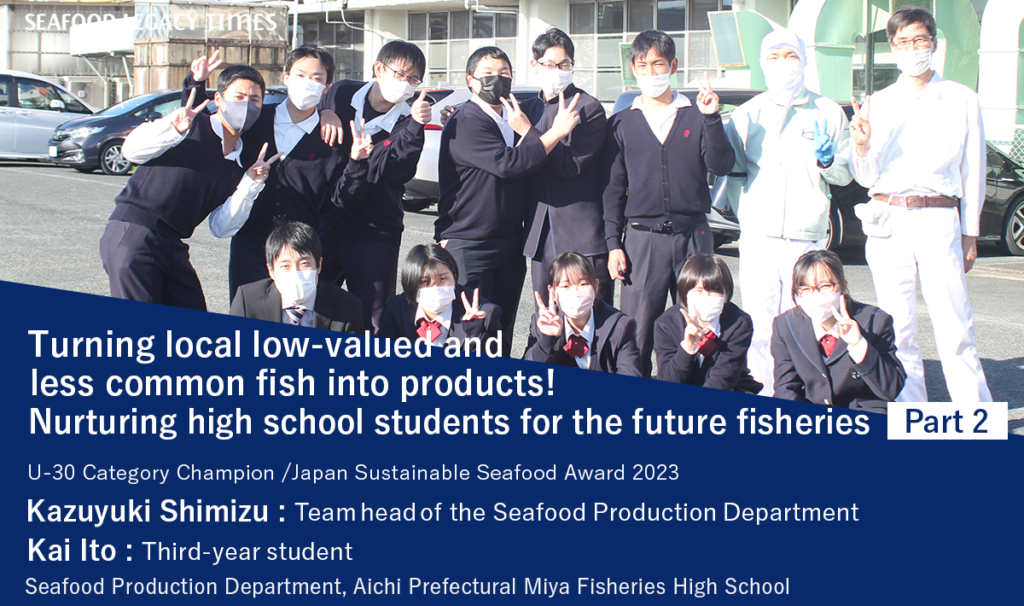
-1024x606.png)


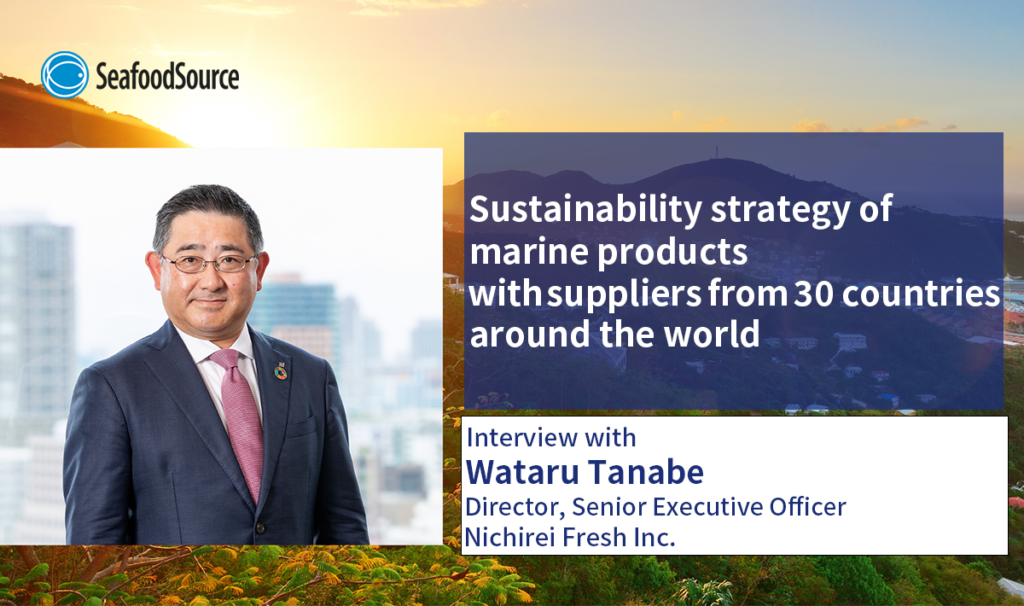
_-1024x606.png)
















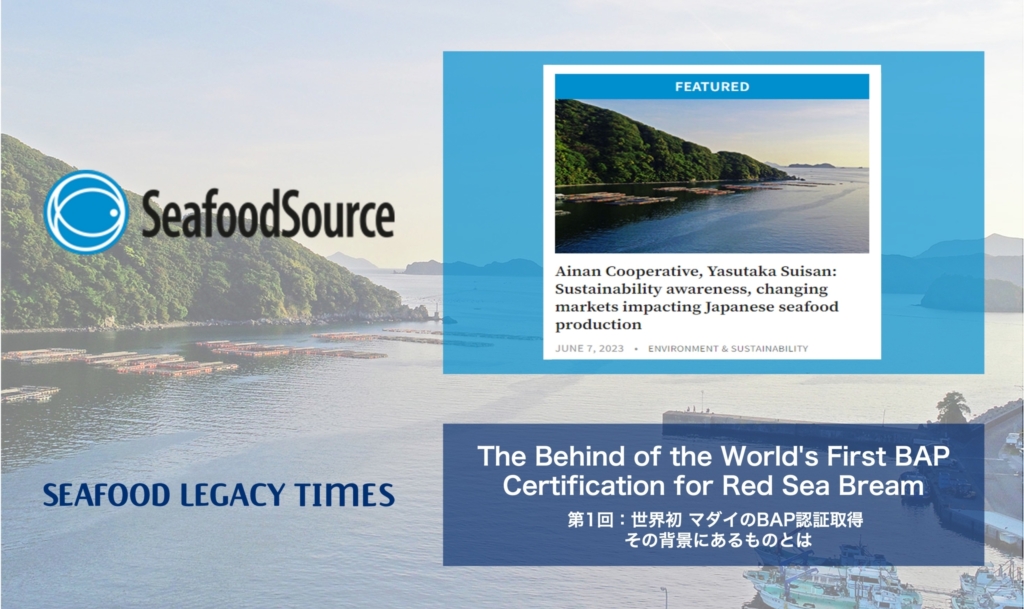

1_修正524-1024x606.png)















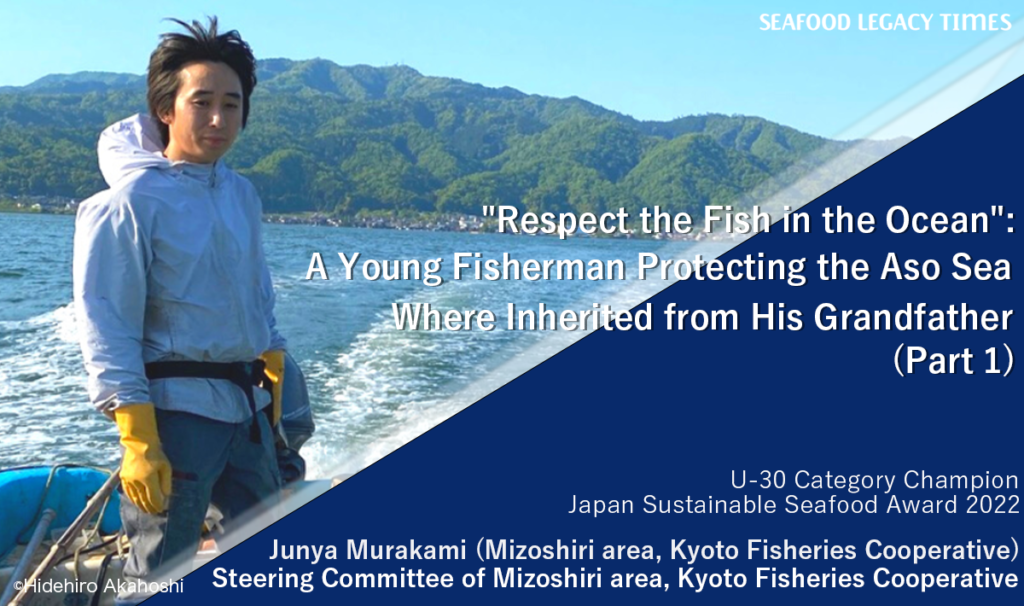
.2-1024x606.png)


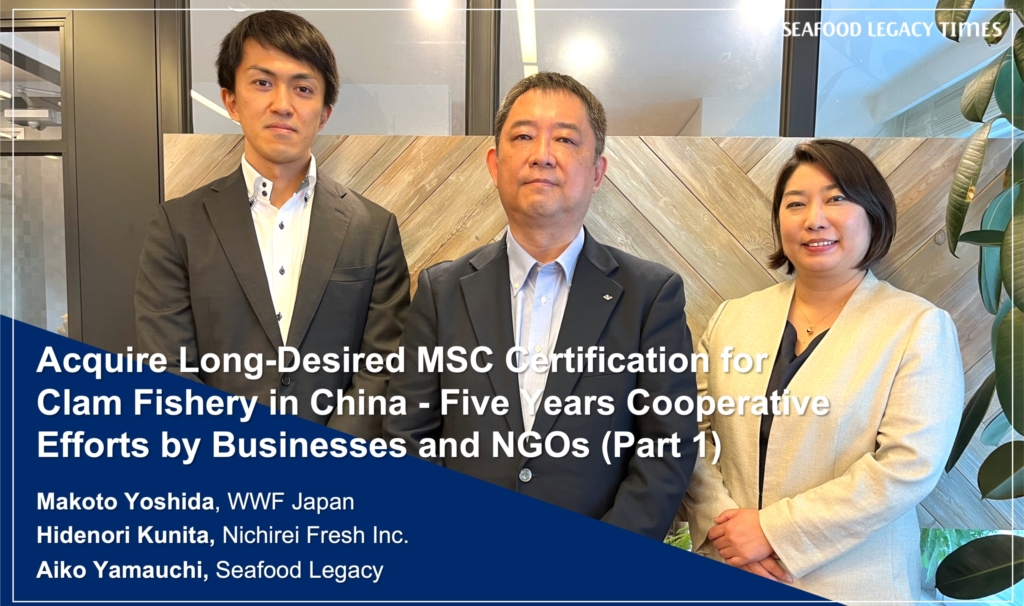






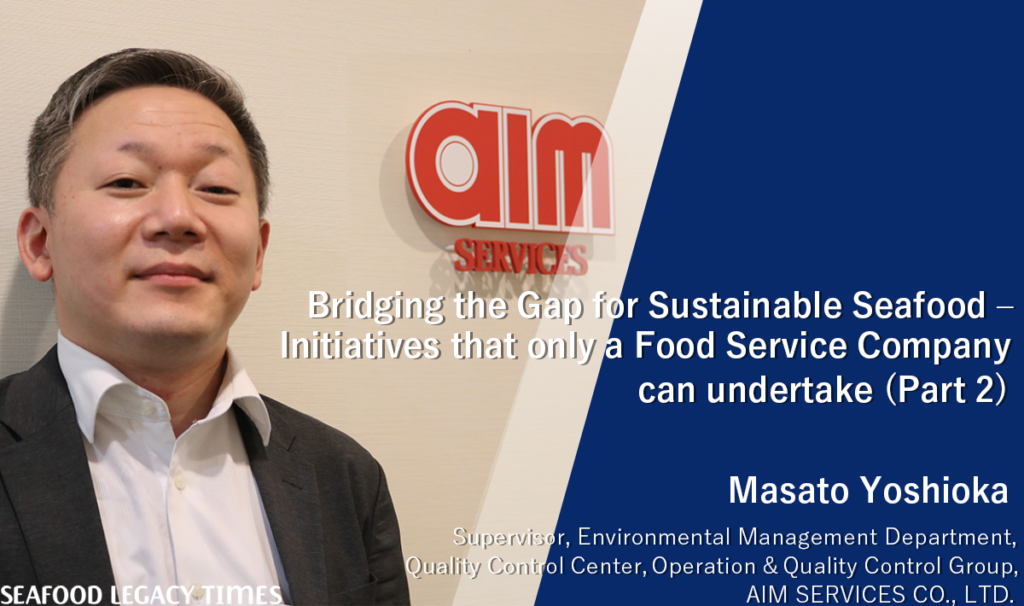
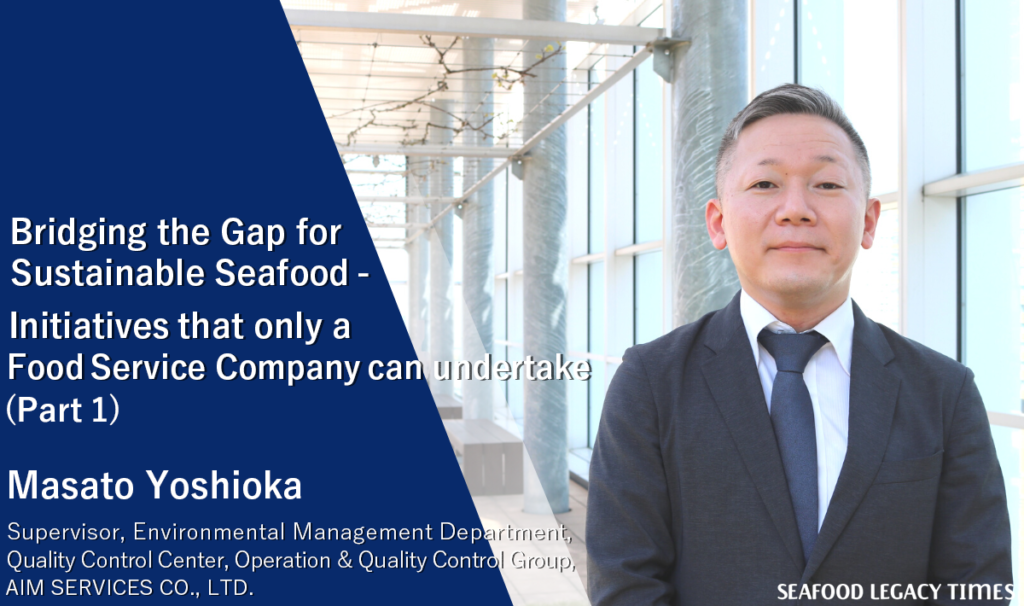
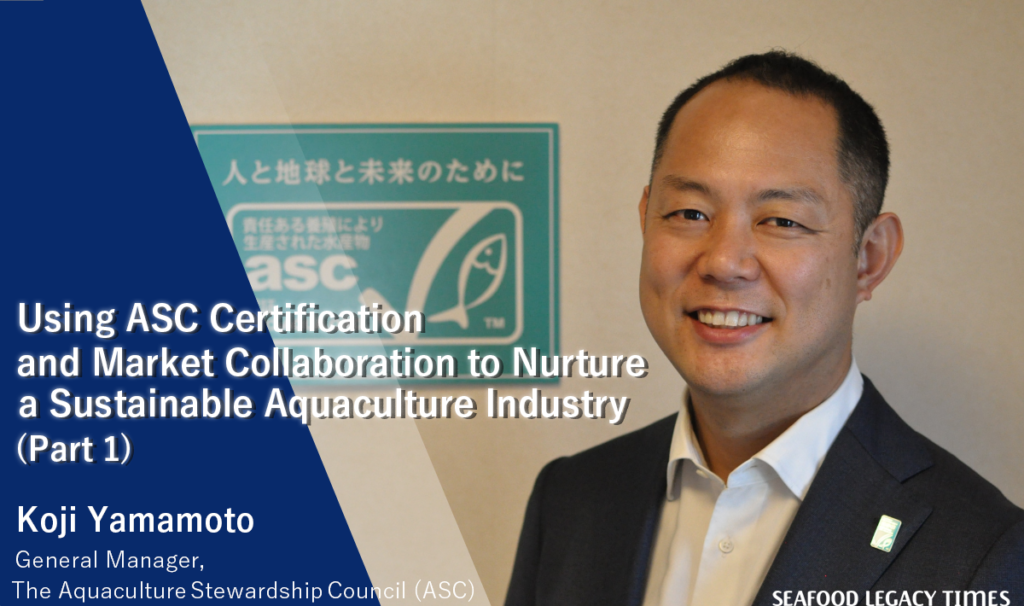
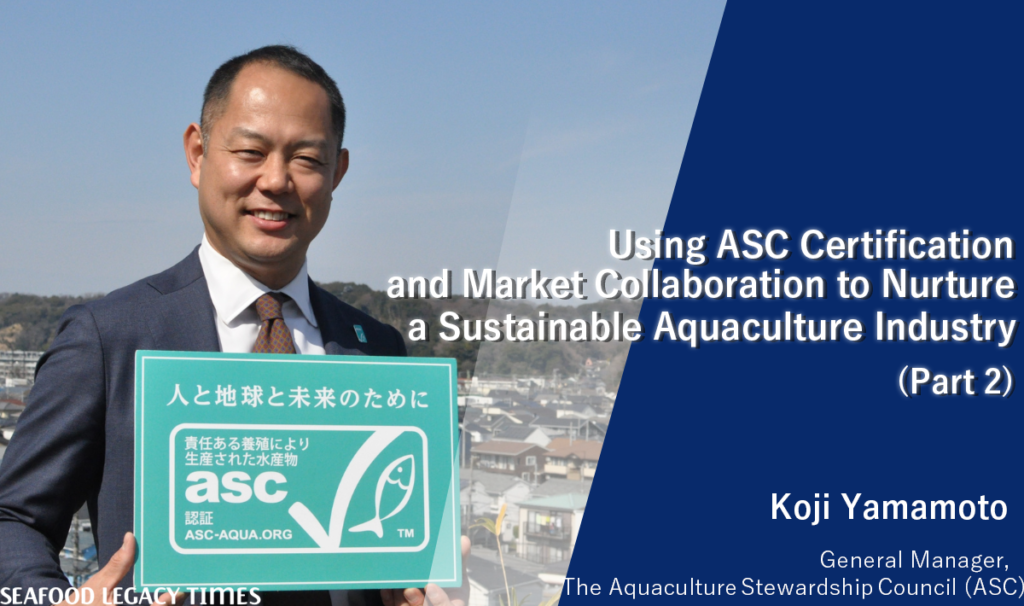
2-1024x606.png)
-1-1024x606.png)
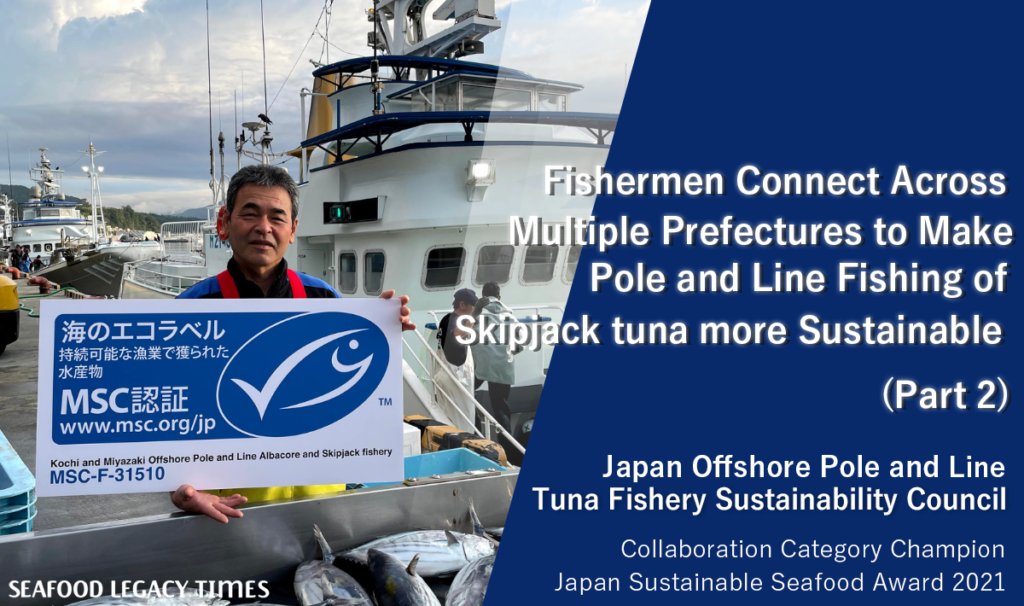
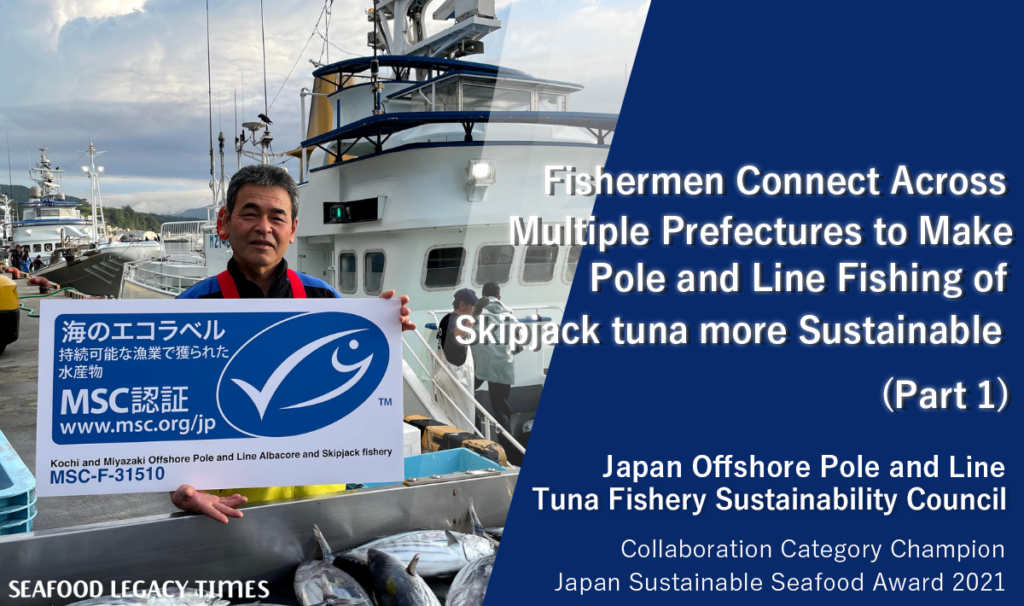
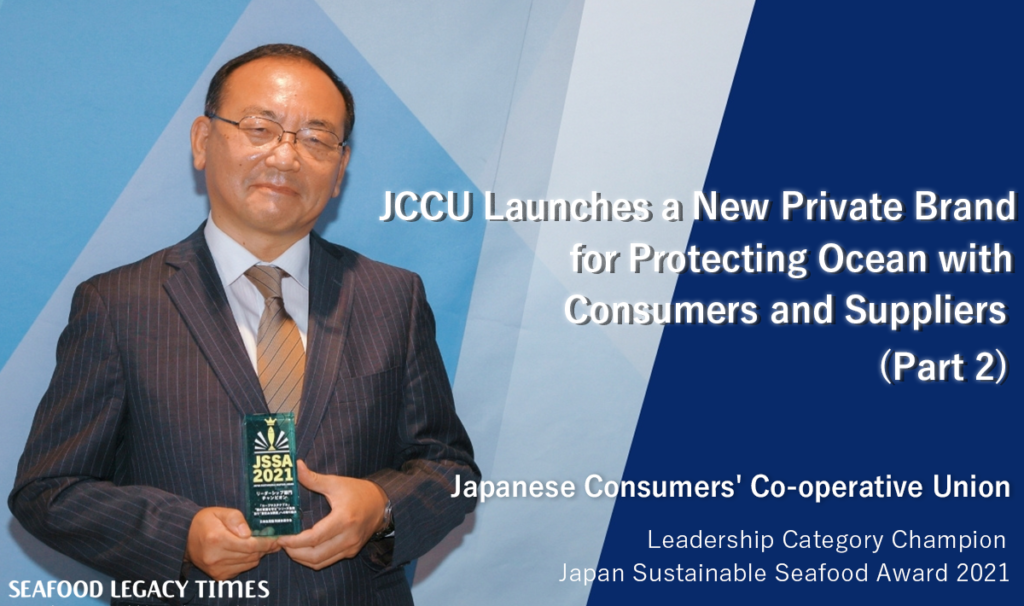
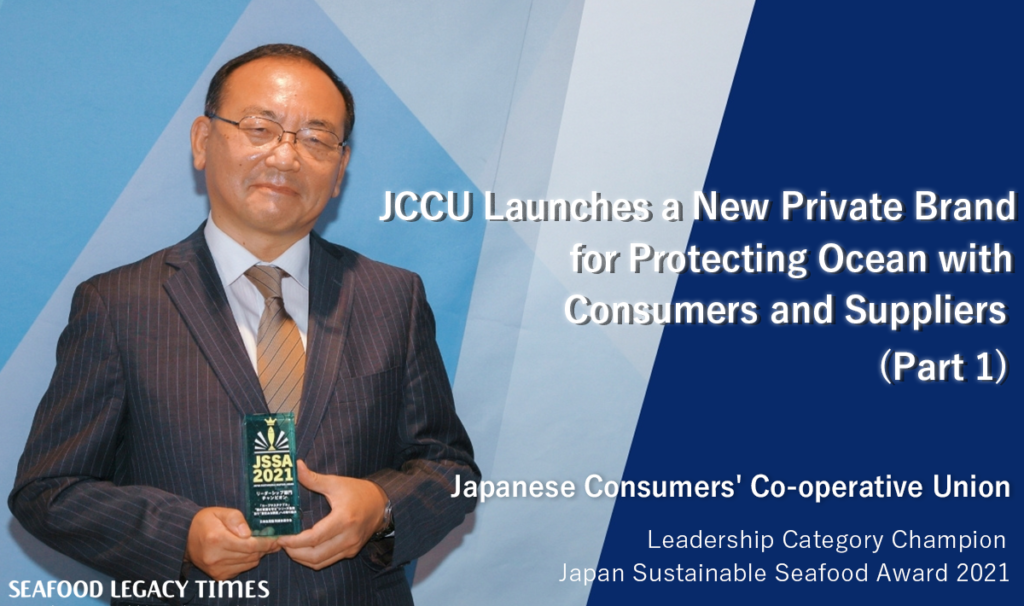
Part2-1024x606.png)
Part1-1024x606.png)
